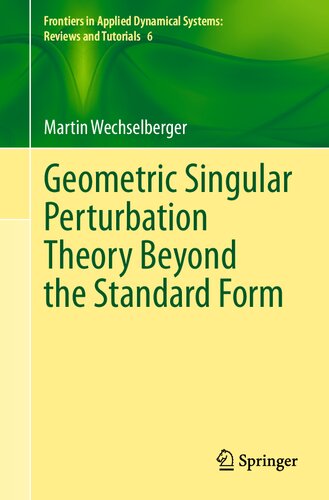

Most ebook files are in PDF format, so you can easily read them using various software such as Foxit Reader or directly on the Google Chrome browser.
Some ebook files are released by publishers in other formats such as .awz, .mobi, .epub, .fb2, etc. You may need to install specific software to read these formats on mobile/PC, such as Calibre.
Please read the tutorial at this link: https://ebookbell.com/faq
We offer FREE conversion to the popular formats you request; however, this may take some time. Therefore, right after payment, please email us, and we will try to provide the service as quickly as possible.
For some exceptional file formats or broken links (if any), please refrain from opening any disputes. Instead, email us first, and we will try to assist within a maximum of 6 hours.
EbookBell Team

4.8
74 reviewsThis volume provides a comprehensive review of multiple-scale dynamical systems. Mathematical models of such multiple-scale systems are considered singular perturbation problems, and this volume focuses on the geometric approach known as Geometric Singular Perturbation Theory (GSPT).
It is the first of its kind that introduces the GSPT in a coordinate-independent manner. This is motivated by specific examples of biochemical reaction networks, electronic circuit and mechanic oscillator models and advection-reaction-diffusion models, all with an inherent non-uniform scale splitting, which identifies these examples as singular perturbation problems beyond the standard form.
The contents cover a general framework for this GSPT beyond the standard form including canard theory, concrete applications, and instructive qualitative models. It contains many illustrations and key pointers to the existing literature. The target audience are senior undergraduates, graduate students and researchers interested in using the GSPT toolbox in nonlinear science, either from a theoretical or an application point of view.
Martin Wechselberger is Professor at the School of Mathematics & Statistics, University of Sydney, Australia. He received the J.D. Crawford Prize in 2017 by the Society for Industrial and Applied Mathematics (SIAM) for achievements in the field of dynamical systems with multiple time-scales.